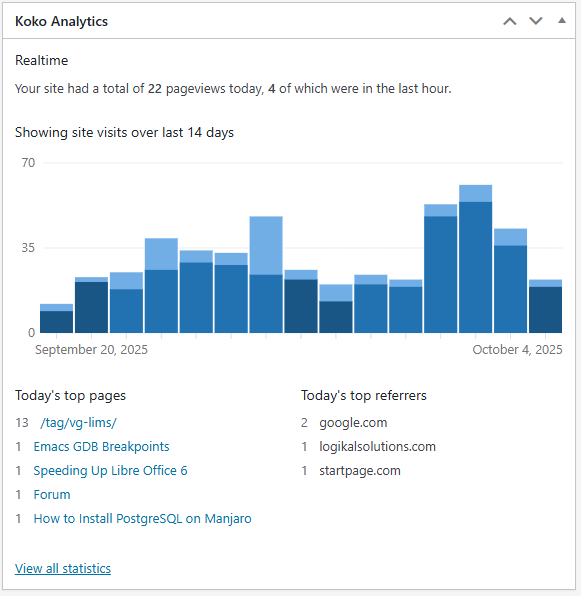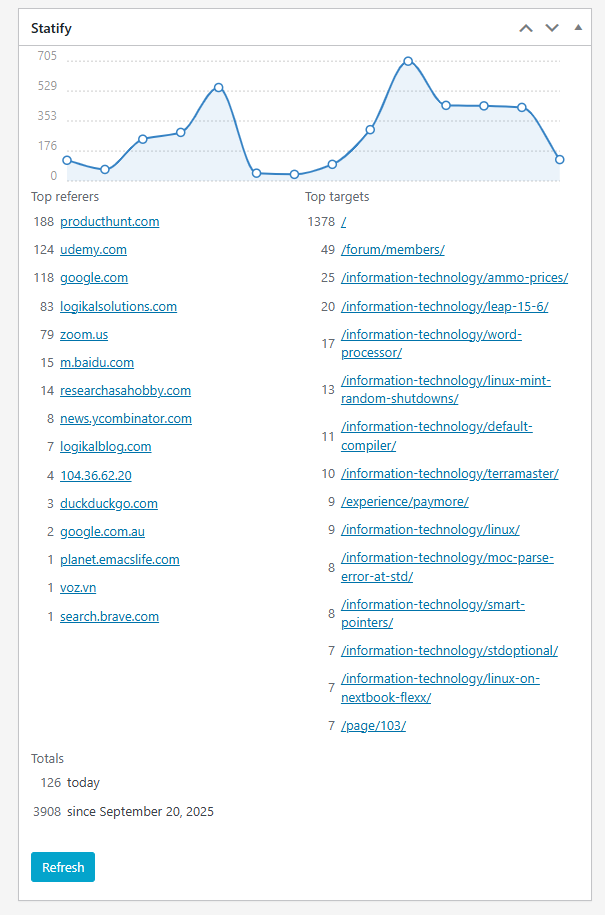WordPress statistics is a murky, at best, topic. Most sites seem to choose the package that makes them seem more important then paste screen shots all over. The official WordPress statistics plugin makes your servers groan and has all kind of conflicts with other plugins. Same goes for their cache. I’ve had to uninstall both. Thankfully there is no end of substitutes.
Koko
Koko is a plugin I recently installed when my previous statistics package (don’t even remember the name) developed a conflict with about every cache on the planet, included SpeedyCache. Kept sending out notifications to “don’t allow minify” on page after page. If your code is so sloppy you can’t have it compressed, you should be stocking shelves at Walmart instead of writing software. Either that or be senior management at Microsoft.

I like the look of Koko. Hate they want me to upgrade to pro (non-free). Also hate they don’t let me go back day by day.

Yes, the “View all statistics” goes to an even nicer page with limited functionality. Keep in mind the first image with the date range and counts.
Statify
I gotta say, Statify is something I installed years ago. Even wrote about it back in 2018. By default it exists really far down on the dashboard page so I rarely look. The other day I looked and it showed me Chatgpt mined one of my other sites. The default counting appears to be more informed than any other WordPress statistics package I’ve ever used.

Please note the differences at the bottom. It is October 4, 2025 at about 9am as I write this. Statify says 126 today and 3908 since September 20, 2025.
Koko says September 6, 2025 through to today had 652 total visitors with 882 page views.
Being a software developer for the past 40 years, I could understand being “off by a few” but this is like what Donald Trump says compared to actual reality, completely disconnected. Statify has been held in high regard for a long time. It’s free. Developers of other stats products should actually compare. Possibly, even look at the code to figure out how to do it right?